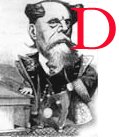 ickens contrasts the life of a commoner to the life of a privileged individual in his novel Great Expectations. Pip is first introduced as a commoner, an apprentice under the wing of his surrogate father, Joe. Joe and Pip maintain a caring, comfortable relationship with one another, content with their humble existence. However, Pip entertains ideas of a grander lifestyle, filled with assets, status, and most importantly, a striking and dignified woman. His dreams come to fruition upon receiving an inheritance from an unknown source. Pip, whisked away by his newly obtained fortune, becomes a young man of higher social status. He abandons his modest home and occupation, leaving behind a loving bond with Joe. Pip maintains affection for his humble beginnings, and resents abandoning his common friends, Joe and Biddy, for less meaningful relationships. Joe visits Pip in London, yet their altered relationship leaves their meeting awkward and strained. Joe acknowledges their different social positions, and it is this social change which hinders their interaction. Joe compares their relationship to different professions, and uses a simple analogy reflecting his unsophisticated lifestyle.
ickens contrasts the life of a commoner to the life of a privileged individual in his novel Great Expectations. Pip is first introduced as a commoner, an apprentice under the wing of his surrogate father, Joe. Joe and Pip maintain a caring, comfortable relationship with one another, content with their humble existence. However, Pip entertains ideas of a grander lifestyle, filled with assets, status, and most importantly, a striking and dignified woman. His dreams come to fruition upon receiving an inheritance from an unknown source. Pip, whisked away by his newly obtained fortune, becomes a young man of higher social status. He abandons his modest home and occupation, leaving behind a loving bond with Joe. Pip maintains affection for his humble beginnings, and resents abandoning his common friends, Joe and Biddy, for less meaningful relationships. Joe visits Pip in London, yet their altered relationship leaves their meeting awkward and strained. Joe acknowledges their different social positions, and it is this social change which hinders their interaction. Joe compares their relationship to different professions, and uses a simple analogy reflecting his unsophisticated lifestyle.
"Pip, dear old chap, life is made of ever so many partings welded together, as I may say, and one man's a blacksmith, and one's a whitesmith, and one's a goldsmith, and one's a coppersmith. Diwisions among such must come, and must be met as they come. If there's been any fault at all to-day, it's mine. You and me is not two figures to be together in London; nor yet anywheres else but what is private, and beknown, and understood among friends. It ain't that I am proud, but that I want to be right, as you shall never see me no more in these clothes. I'm wrong in these clothes. I'm wrong out of the forge, the kitchen, or off th'meshes."
I had not been mistaken in my fancy that there was a simple dignity in him. The fashion of his dress could no more come in its way when he spoke these words, than it could come in its way in Heaven. [chapter 27; place within the complete text of the novel]
Questions
Joe wisely acknowledges that Pip's change in social status has driven them apart. However, he does not place blame on Pip for their weakened relationship. Rather, he accepts the change as a fact of life. Is Joe simply protecting Pip because Pip would otherwise become extremely upset? Or does Joe say this for another reason?
Joe speaks to Pip and stresses the importance of clothing and outwardly appearance. What role does clothing and outwardly appearance play in the novel? Pip then states that the fashion of his dress “could no more come in its way when he spoke these words, than it could come in its way in Heaven". What does Pip mean by this statement, and what role does appearance play in life as a whole? What is the importance of Mrs. Havisham' perpetually wearing her decaying wedding dress?
Pip sees simple dignity within Joe, despite his lower social status. This awkward meetings brings the two closer while highlighting their differences. Pip realizes that social status is less important than love, affection and loyalty. How do Pip's opinions of other characters such as Estella and Drummle change after such a realization?
Joe states that their relationship can only be maintained secretly and in their own minds. However, later on Mrs. Havisham goes on to say that love is “blind devotion, unquestioning self-humiliation, utter submission, trust and belief against yourself and against the whole world, giving up your whole heart and soul to the smiter". Does this mean that the relationship between Joe and Pip is not a loving one? What does this statement by Mrs. Havisham say about Pip's relationship with Estella?
Related Material
References
Dickens, Charles. Great Expectations. Ed. Edgar Rosenberg. New York: W.W. Norton, 1999.
Last modified 16 February 2004